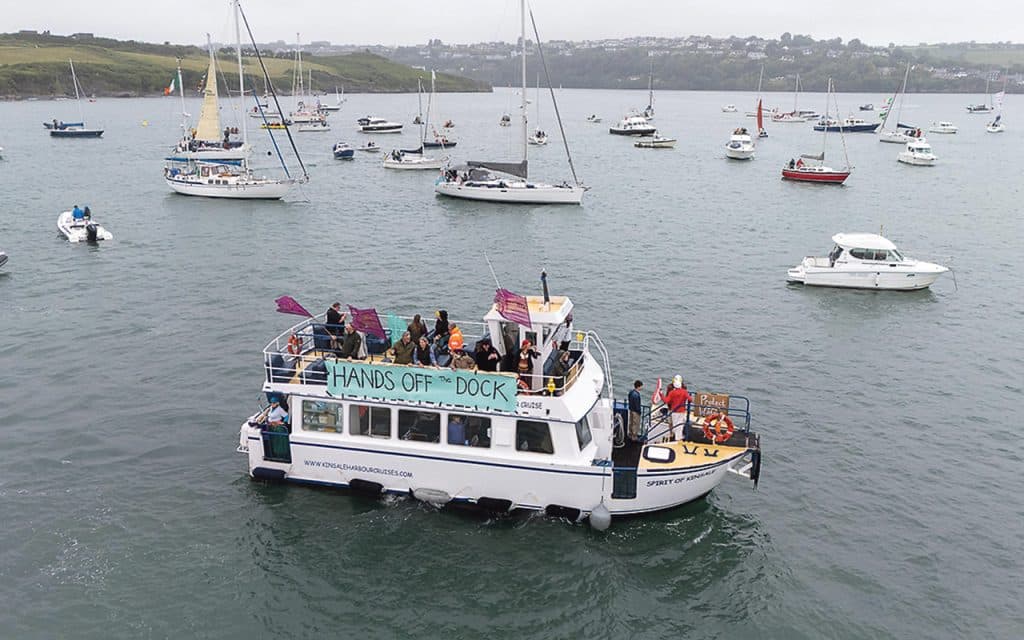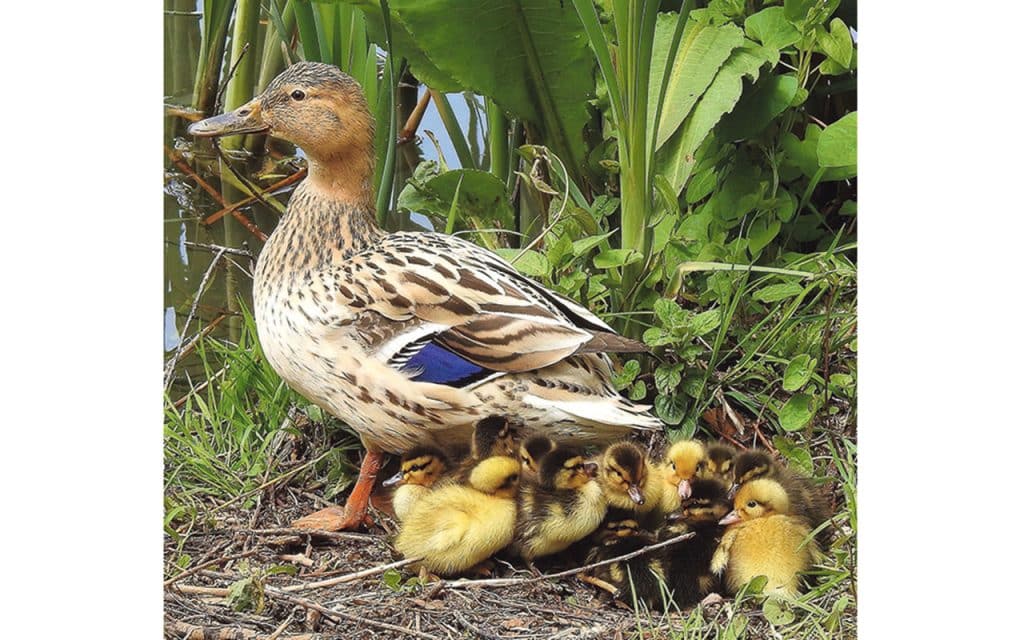As the world population grows Aquaculture is considered vital to global food security and so is expected to continue expanding in the coming years. In Ireland Aquaculture employs around 2,000 people with mussel farming accounting for around 317 jobs, nevertheless Kinsale residents, backed by all of the area’s councillors, have turned out in their hundreds recently to protest the approval of an Aquaculture licence for the raising of mussels for direct human consumption, in a large area of seabed adjacent to Dock Beach. The project has the potential to create six new jobs however, protesters fear that the mussel farm will negatively affect tourism and leisure and will destroy the ecology of the area and the adjacent submerged Natural Heritage Site off James Fort. The petition found at change.org (Stop Kinsale Mussel Farm) includes a very well laid-out and informative account of local people’s valid concerns. Fiona Hayes looks at the issues around the licensing, not least that a full environmental impact survey has not been carried out.
The aquaculture licence application for the mussel farm in Kinsale was submitted in December 2018 and yet the decision to grant the licence was not made until May 2025. Much may have changed in the six-and-a-half years of waiting for a decision, not only relating to the site in Kinsale but also around the Irish Coast and in the Irish Sea where the mussel seed is fished. As recently as Tuesday, June 17, 2025, the Joint Committee on Fisheries and Maritime Affairs held discussions on the time it takes to decide on an aquaculture licence; and it was voiced that the huge delays on these decisions affect all; and that these delays are causing the industry to completely underperform in relation to its potential.

During the six-and-a-half years that interested parties have been waiting for the Department’s decision in Kinsale, a whole review of the mussel farming industry in Ireland has shown that this industry creates a total income of around €15 million per annum, with most of that coming from suspended mussel farms, as opposed to bottom-grown mussel farms. Indeed, the economic performance in the bottom grown mussels sector shows that this segment is in economic distress.
The proposed mussel farm in Kinsale will be bottom grown rather than suspended on ropes, as we more often see in the deep bays around the coast of West Cork. Wild mussel seed will be collected from The Irish Sea by dredging and will then be transplanted onto the licensed aquaculture site for on-growing, with harvesting by dredging occurring between 12 and 24 months later. The length of time it takes for mussels to grow from seed to a size suitable for eating depends on such factors as water temperature, food availability, and farming methods.
The ongoing supply of mussel seed is almost entirely reliant on the natural settlement of wild mussel seed in relatively small areas in the Irish Sea. The mean dredged biomass of mussel seed from the Irish Sea is in the range of 7,000 to 10,000 tonnes per annum with large variations year-to-year. BIM, Ireland’s seafood development agency, estimates that, based on data it has collected since 2010, the annual average area of the mussel seed fishery in the Irish Sea is approximately 350 hectares and far less mussel seed has been fished than has been allocated.
The Marine Stewardship Council (MSC) certification is a market-based instrument aimed at recognising sustainable fishing practices using a credible, independent, third-party assessment process. Uniquely in Ireland the bottom-grown mussel fishing industry has retained its MSC certification every year since it first achieved it in 2013. This is a mark of seafood coming from a well-managed and sustainable source, ensuring no overfishing, and that the fish population remains productive and healthy
The MSC standard also focuses on environmental impact, ensuring that other species and habitats within the ecosystem remain healthy and that all relevant environmental laws are complied with and adaption to changing environmental circumstances is prevalent.
The location of the proposed site in Kinsale has not previously been used for aquaculture and is not a registered aquaculture site. It seems surprising then, especially given the MSC standards, that a full environmental impact survey has not been carried out prior to this licence being granted. It is known for example that Zostera Marina Seagrass is found in Kinsale Harbour and that it forms a nursery habitat for juvenile fish.
The distribution and abundance of seagrass globally has declined during the last century. Reduced water quality and destruction by activities such as dredging, anchoring, mooring and harbour development can rapidly reduce the seagrass beds and, whilst reductions may be rapid, recolonisation may require long time periods. Restoration of seagrass beds requires considerable resources, and these beds are protected under the OSPAR convention.
Whilst an Appropriate Assessment has been submitted in Kinsale, this was very broad, looking at oyster bed sites much further upstream and with somewhat sketchy information on the proposed mussel beds. For this particular new aquaculture site, which introduces a new activity, the licensing body did not ask for an Environmental Impact Statement, which would require a much more comprehensive discussion of the reasonable alternatives and more focus on the cumulative impacts of the project proposed, alongside all existing activities and reasonably foreseeable future development within the area.
There is no doubt that mussel farming adds significantly to the Irish economy and could probably add more. There is also a wealth of research on different modes of mussel farming and on how they can affect the environment, improving it or proving detrimental, depending on many ongoing factors. Sadly, the long delays in decisions on licences for aquaculture don’t seem to reflect the development of an overall fish stocks management strategy for all of Ireland’s coastal waters.
In the past two weeks a new chairperson has been welcomed to the Aquaculture Licence Appeals Board (ALAB). It was noted at the meeting, which welcomed him, that there is a six-year delay and a backlog of 295 licences to be decided in the Aquaculture industry upstream of the Appeals Board. These 295 applications are being delayed by the lack of appropriate assessments, which are determined by the Marine Institute. Most appeals heard by ALAB relate to licences that have been granted and which a third party, or third parties want to have revoked.
The residents of Kinsale may have quite a wait for ALAB to hear their case.



